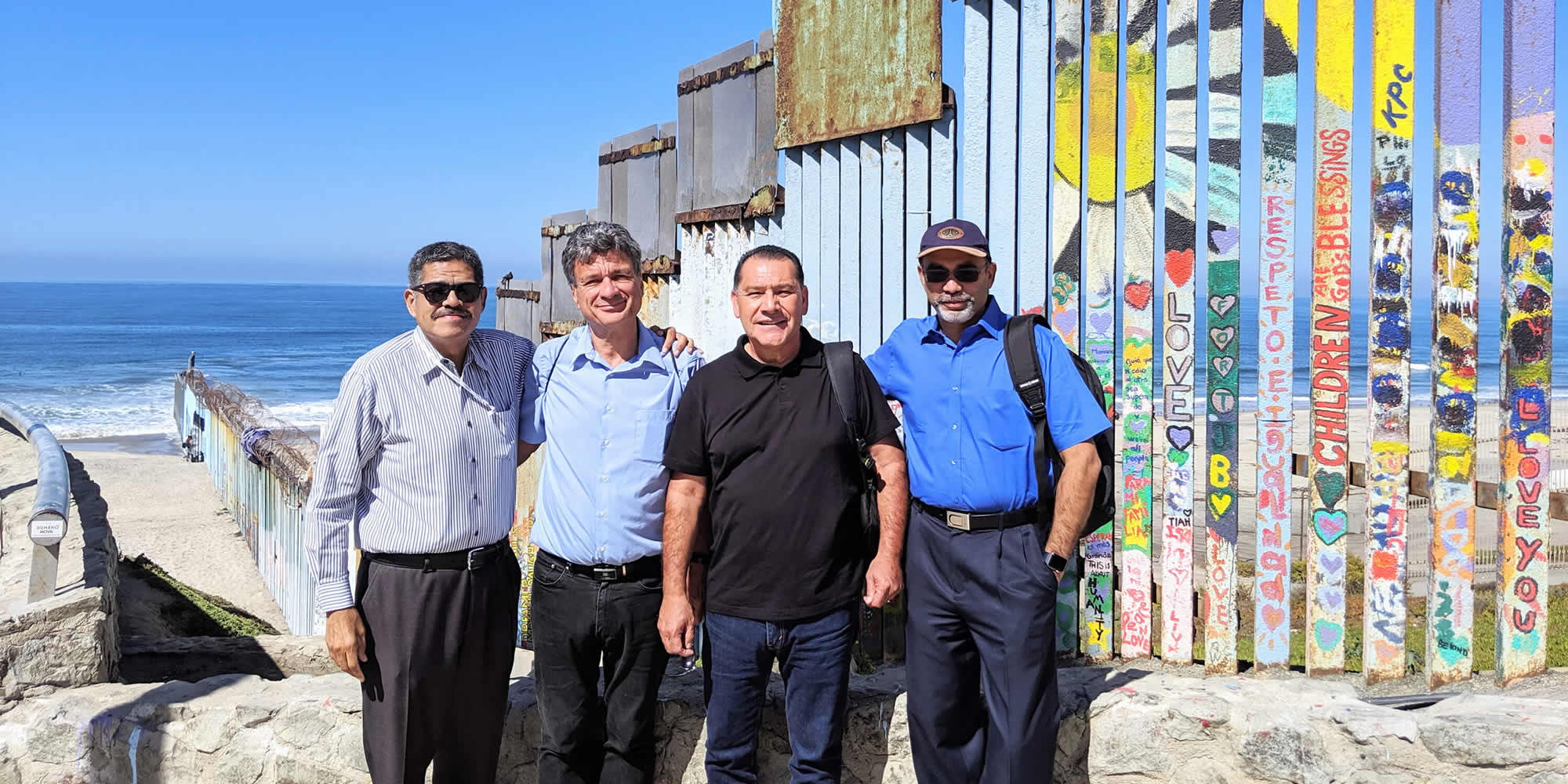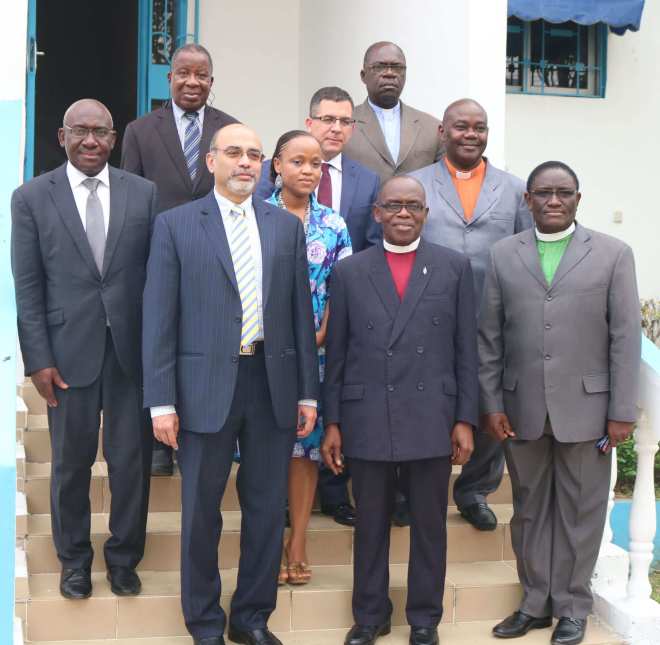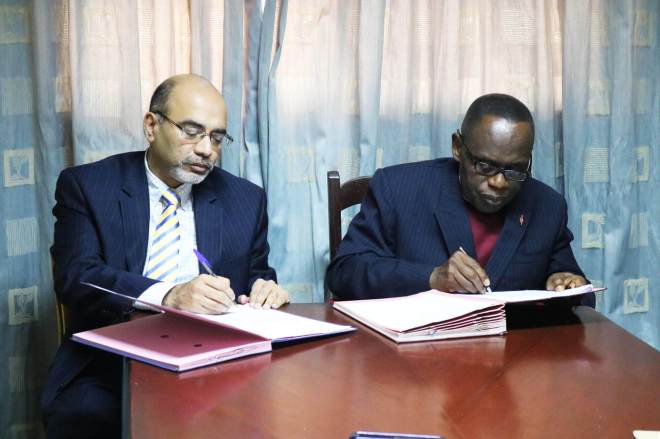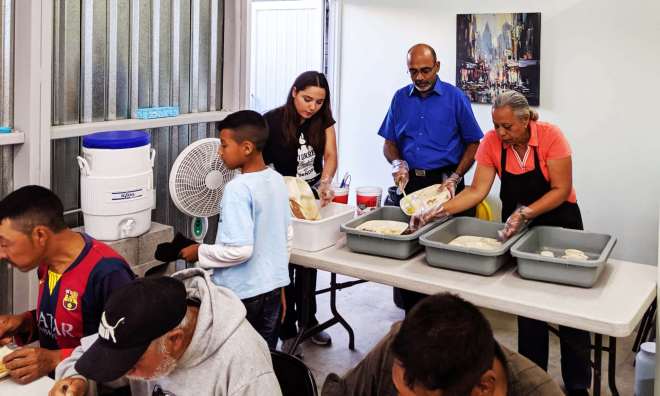Five questions for Roland Fernandes

An interview with Global Ministries’ new general secretary
By Christie R. House
September 24, 2020 | ATLANTA
Roland Fernandes takes time to answer five questions about his new role as general secretary of Global Ministries and UMCOR, his thoughts about the mission of God and what it means to be a leader in challenging times.

PHOTO: MANASSE SEDJI, CÔTE D’IVOIRE COMMUNICATION OFFICE
Christie House:When first starting out in your career, what led you to work with the church, and eventually, with the UMC mission agency?
Roland Fernandes: From a very young age, I was drawn to matters of the spirit and soul. I was very religious as a young boy growing up in Kolkata, India.
I graduated from St. Xavier’s College and School. Through challenging circumstances, I passed my Chartered Accountancy (the equivalent of a Certified Public Accountant in India) while working on a Master of Commerce degree at Calcutta University. I finished it in 3 ½ years, which is not common.
Then, as I moved across the country to Mumbai to join my family, I felt I wanted to serve somewhere, which was always my inclination.
I was intrigued by a job listing with the “MCI,” which was advertised in our Catholic newspaper. I didn’t even know what the acronym stood for, but I applied for the job with the Methodist Church in India. The MCI leadership made an offer which was quite unprecedented, given the circumstances and my background and I just took it on. Now, 32 years later, I’m still with the Methodists. Over time, with my deep involvement in Methodist work, I joined The United Methodist Church.
The years with the MCI were very fulfilling but also difficult. I was the chief auditor, and I encountered many challenges, but I felt a deep calling to the work there.
Later, Global Ministries opened its own financial office in India and asked me to serve as the area financial executive, and I served for two years in India and the Philippines in this role. After my father passed away, my wife and I decided to join the rest of my family in the U.S. About that time, Global Ministries’ World Division treasurer asked me, “Why don’t you come to New York for a year and see if you like working with us?”
Even though my work has always been in finance, for me, the work was about how finance enables mission. I never intended to stay, but each time I thought of leaving, I was drawn back into something else. In 2003, I was offered the job of general treasurer and, later, of chief operating officer.
I didn’t plan to become general secretary. I was asked to think about it and after careful and prayerful consideration, decided it was something I could and would do. On a deeper level, I have a sense that this is where God is calling me to be. Global Ministries offers a channel to try to make a difference in the world.
Christie House:Reflecting on your 25 years with Global Ministries, when have you seen mission work making its greatest impact, both life-giving and transformational?
Roland Fernandes: Our role is to enable and facilitate mission. Truly effective mission is life-giving and transformational for those we work with and for us as well. We can’t lose sight of that mutual aspect of mission.

PHOTO: MANASSE SEDJI, CÔTE D’IVOIRE COMMUNICATION OFFICE
I have seen many examples of mission that transforms whole communities. I think of the work of UMCOR: the relief work after Katrina, the work in Indonesia after the tsunami, the five years of casework in New York after the 9-11 tragedy and the work we share with the African health boards.
In January this year, I traveled to Côte d’Ivoire and met with Bishop Benjamin Boni to talk about the transition of the Cameroon and Senegal mission initiatives to the Côte d’Ivoire Annual Conference. We’ve had some difficult conversations over two years and it was not an easy journey, but we drew up a Memorandum of Understanding. It’s been rewarding to see the creation of the mission initiatives and then to transition them as districts within the Cote d’Ivoire church, which was willing to take that path.
Another example was when Thomas Kemper and I visited the U.S./Mexican border ministries last fall. In Tijuana, we volunteered in a kitchen called Comedor Juan 6:35. We saw migrants from many different countries coming in for a meal. U.S. volunteers from San Diego helped with preparation along with volunteers from the Methodist Church of Mexico, and two Global Mission Fellows served there, one from India and one from the Philippines. Seeing people work together from all those different places, offering whatever they could to the mission, was transformative to see.
When we achieve mutuality in mission, everyone contributes, from near and far, and no one comes from a place of superiority to claim the mission. Everyone works together.

Christie House:You are becoming General Secretary at a particularly challenging time for the church because of COVID-19 and the divisions that threaten the denomination’s unity. What strengths do you bring to the office for this time and situation?
Roland Fernandes: I think my history with the agency is an advantage. Having been involved for many years at a senior leadership level, I’ve worked with all the program units. I know the finances. I’ve been part of the changes, including the move from New York to Atlanta, and I’ve been fully engaged in the agency’s inner workings.
I have also come to know The United Methodist Church. I attend many meetings, working across the denomination with annual and central conference leaders. I think I have developed relationships within the church, and I think I’ve developed a level of trust with people.
I can look at critical and chaotic situations with a fair degree of calmness and I’m not afraid to make hard decisions.
I’ve been a great follower of the work of Father Richard Rohr for many years, and I have become involved with Illuman, a nonprofit organization in which men help to transform other men though a power that is far greater than ourselves. On a conference call recently, Father Richard said, “You know, as leaders, you can’t be worried about being liked.” I try to keep that in mind. Sometimes hard decisions must be made, and we cannot be afraid to make them.
Speaking from my unique experience, I think Global Ministries needs to concentrate on making the best use of the resources we have. I’ve identified five important steps to help us in this work: narrowing our focus, working for greater accountability, collaborating intentionally, evaluating the impact of our work and communicating effectively.
Christie House:How will a sense of participation in God’s mission help to stabilize the UMC on the rocky road ahead, in terms of both local and global mission work?
Roland Fernandes: First, this is God’s mission and the mission will continue, there is no question about that. Whether or not mission happens in the church, whatever shape the church and the general agencies are in or not in, mission will continue. Remembering this and that God is in control brings a sense of stability for me, and I hope for the church as well. When we work in God’s mission, we are focusing outside of ourselves. We are looking out to see where we are being called to work. We must be flexible and adaptable to what God is calling us to do.
In all honestly, mission is not about providing stability to the UMC. It might just happen that mission provides a place where people can come and work together from different countries, perspectives and cultures, and I think that is a great gift that can provide a sense of stability.
Why we do mission, whether locally or globally, is to answer God’s call and enable and facilitate God’s work in the world.
Christie House:The work of mission is rewarding but challenging. Where do you find spiritual nourishment?
Roland Fernandes: It has been an evolving journey for me. I read a lot, especially books of a spiritual nature. I’ve been influenced by Thomas Merton and Richard Rohr. In addition to my work with Illuman, I’ve just completed the Living School, a two-year program with the Center for Action and Contemplation with guidance from spiritual leaders, including Father Rohr. These have been great channels for me, as I try to stay in touch with the sacred part of myself. I think we all have a sacred part in ourselves, and when we connect to that, we find great peace.
I practice contemplation regularly, try to connect with nature and spend time in silence. These are ways that I find spiritual nourishment. But if I lose a sense of the sacred in this work, our work as Global Ministries, then my work becomes more difficult, relying on myself only. I need to maintain a deeper sense of awareness that this is much greater than me; I’m here for a period of time, doing the best I can. On a denominational level, I hope the church will not lose that sense of who we are and why we are here.
Christie R. House is a consultant for writing and editing with Global Ministries and UMCOR.

